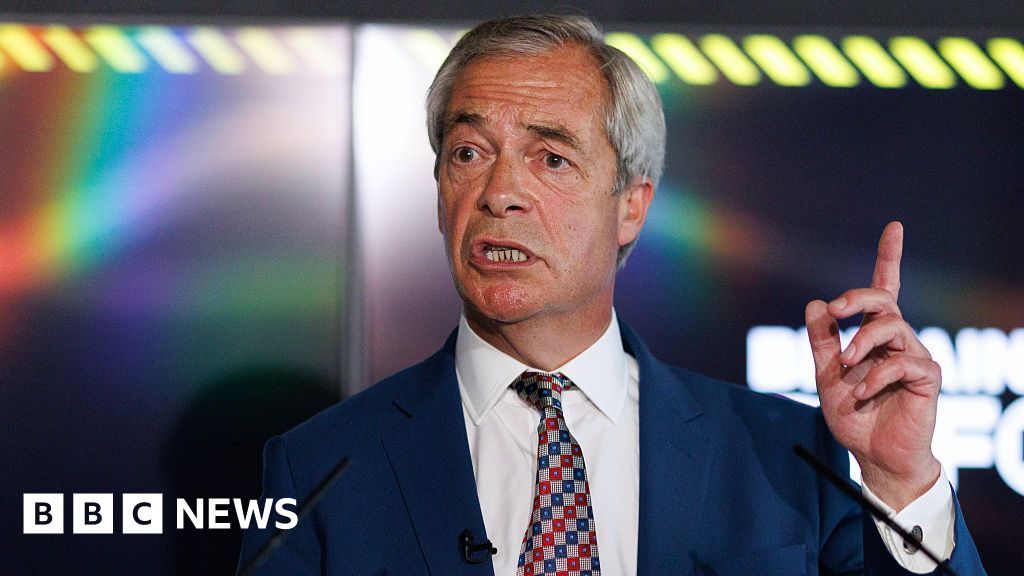Nigel Farage Calls Illegal Migration a Major National Threat
In recent discussions, Nigel Farage, a prominent political figure in the UK, has stated his position on illegal migration, declaring it as a significant national threat. His remarks reflect a growing concern among many about the implications of unchecked immigration and the challenges it poses to national security and social cohesion.
The Context of Illegal Migration
Illegal migration is a pressing issue not just in the UK but globally. Countries are grappling with how to manage borders effectively while ensuring a humane approach to those seeking asylum or a better life. In the UK, the conversation has intensified, particularly with the rise of small boat crossings in the English Channel. This has led to calls for stricter measures and a focus on enhancing border security.
Farage’s Perspective on National Security
Farage argues that illegal migration undermines national security. He emphasizes that the influx of undocumented migrants can lead to increased crime rates and strain public services. His statements resonate with a segment of the population that feels overwhelmed by the rapid changes in demographics and cultural dynamics due to immigration.
- Increased Strain on Resources: Public services such as healthcare and education face heightened pressure from rising numbers.
- Security Concerns: The potential for criminal activity associated with undocumented individuals is a serious concern.
- Social Cohesion: Rapid demographic changes can lead to tensions within communities and a sense of displacement among long-standing residents.
The Political Response
In light of Farage’s comments, political leaders are being urged to take action. Some argue for reforms in immigration policies, while others advocate for a more comprehensive approach that includes addressing the root causes of migration. The UK government has been exploring various strategies, including:
- Enhancing Border Control: Measures to increase surveillance and control at borders, including the use of technology and manpower.
- International Cooperation: Working with other nations to manage migration flows and improve conditions in countries of origin.
- Legal Pathways for Migration: Establishing more legal avenues for migration to reduce the incentive for illegal crossings.
Public Opinion and Migration Policy
The public’s view on immigration is often polarized. Many support stricter controls and are sympathetic to the need for national security, while others advocate for a humane approach to asylum seekers. Farage’s statements have sparked discussions on the need for a balanced immigration policy that addresses both security and humanitarian concerns.
In the context of US immigration news, similar debates are ongoing. Issues such as advance parole news, USCIS office locator, and parole in place updates are crucial for understanding the broader implications of immigration policies. Recent updates regarding humanitarian parole for specific nationalities, including Cubans and Venezuelans, reflect the complexities of managing immigration in a way that is both secure and compassionate.
The Future of Immigration Policy
Farage’s declaration highlights an urgent need to reassess immigration policies in several countries. The challenge lies in balancing the necessity for green security login measures to enhance safety while ensuring that the rights of migrants and asylum seekers are protected. As the political landscape evolves, ongoing discussions will shape the future of immigration reform, including the potential for new policies that reflect the changing sentiments of the public.
Conclusion
Illegal migration remains a contentious topic that demands thoughtful dialogue and action. Leaders like Nigel Farage have brought this issue to the forefront, prompting necessary conversations about security, resources, and humanitarian obligations. As nations navigate these challenges, the path forward will require a nuanced approach that considers both the urgency of national security and the need for compassion in addressing the plight of migrants.
As we look to the future, it is clear that immigration reform will remain a pivotal issue in national and global politics, influencing everything from public policy to community relations. The call for a secure and fair immigration system resonates across borders, and finding a solution that satisfies all stakeholders is essential for a harmonious society.










